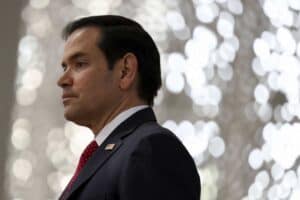The full draft constitution was put before neighbourhood and workplace assemblies for debate between August and November.

Cuba will leave out of its new constitution changes that would have paved the way for legal same-sex marriage, despite majority support in local assemblies, a government official said Tuesday.
It was a surprising twist given public popular support shown nationwide — and earlier remarks from lawmakers in the Americas’ only one-party Communist regime.
The measure would have changed the definition of parties in a marriage from man and wife to “between two people.”
But “the draft constitution will not define which parties enter into a marriage… So that is now out of constitutional reform discussions overall,” Council of State secretary and drafting coordinator Homero Acosta was quoted as saying by state media.
The full draft constitution was put before neighbourhood and workplace assemblies for debate between August and November. The marriage issue was the one that drew the greatest attention.
“Article 68 was the one most discussed by the people in the popular consultation, in 66% of the meetings (of citizen debate). Of the 192,408 opinions, 158,376 propose replacing the measure now in force with the one proposed,” Cuba’s National Assembly said on Twitter.
In light of that, “the (text-drafting) Committee proposes deferring the definition of marriage to the draft constitution, as a way to respect all opinions.”
The new draft, with the changes made, will be taken up Friday by the National Assembly and then submitted to a popular referendum on February 24, 2019.
Ahead of its annual session, Acosta on Tuesday told the National Assembly that 60% of the text’s articles had undergone some type of change.
The commission drafting the new constitution proposed a new article replacing 68, number 82, which defines marriage “as a social and legal institution.”
The committee also deemed marriage “one of the forms of family organization”, which “is based on free consent and equality of rights, obligations and legal capacity of the spouses.”
Separately, the definition of marriage will be left to the Family Code, which will spell out who can be in a marriage.
Those details will be put to a referendum vote within two years of the draft transitional provision, the National Assembly said.
The definition will acknowledge that a shared life and shared family are part of a special legal construct.
The failure to launch of the reform as expected comes during the term of the first post-Castro president, elected in April, Miguel Diaz-Canel.
It would have marked a sea-change on the island where sexual minorities were stigmatized in the wake of the Castro revolution in 1959.
LGBT people were harassed and some were sent to re-education camps, after which they were excluded from any public appointment.
Diaz-Canel has backed same-sex marriage since taking office and said the change “responds to the problem of eliminating all types of discrimination in society.”
It has also been championed by Raul Castro’s daughter, Mariela Castro, who has been a staunch supporter of gay rights in Cuba.
For more news your way, download The Citizen’s app for iOS and Android.






